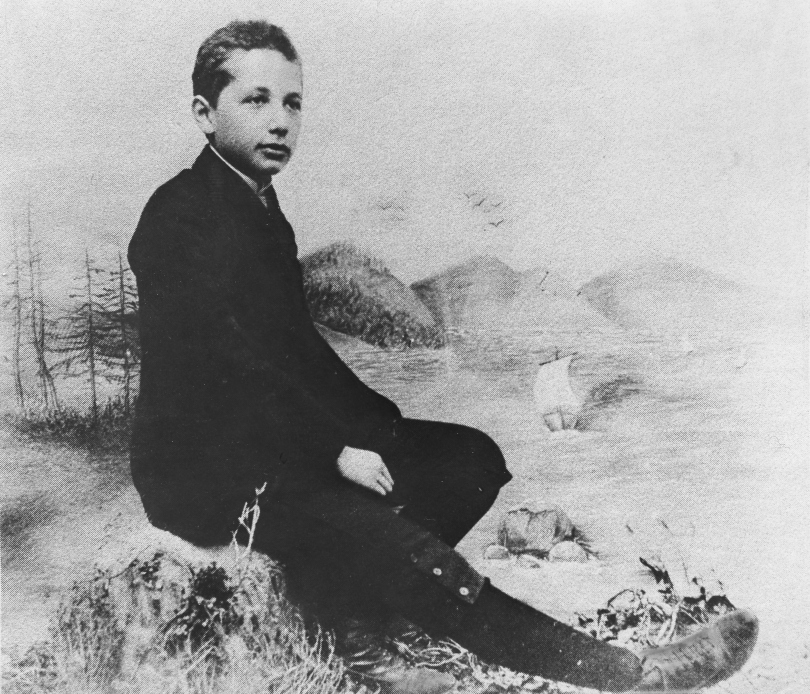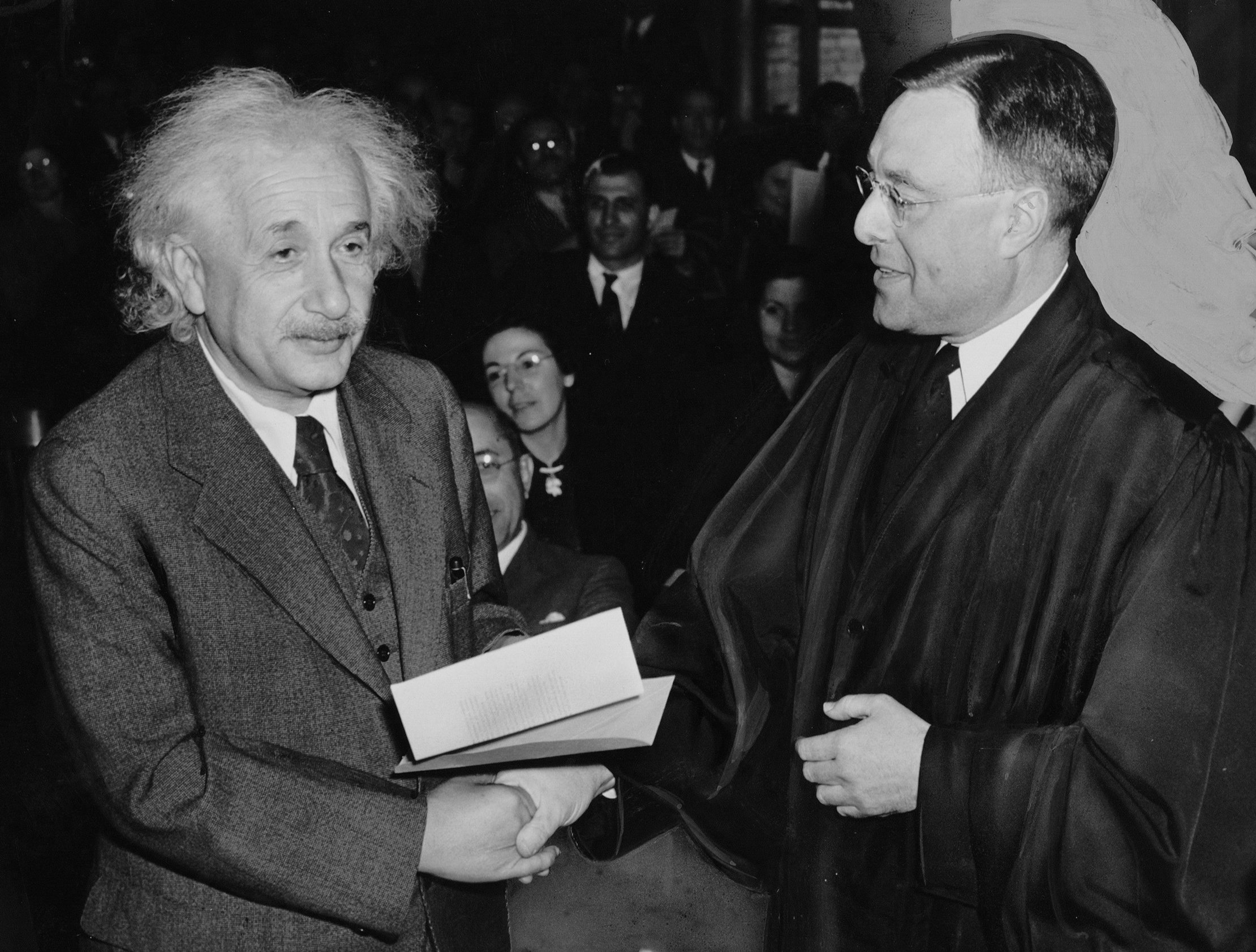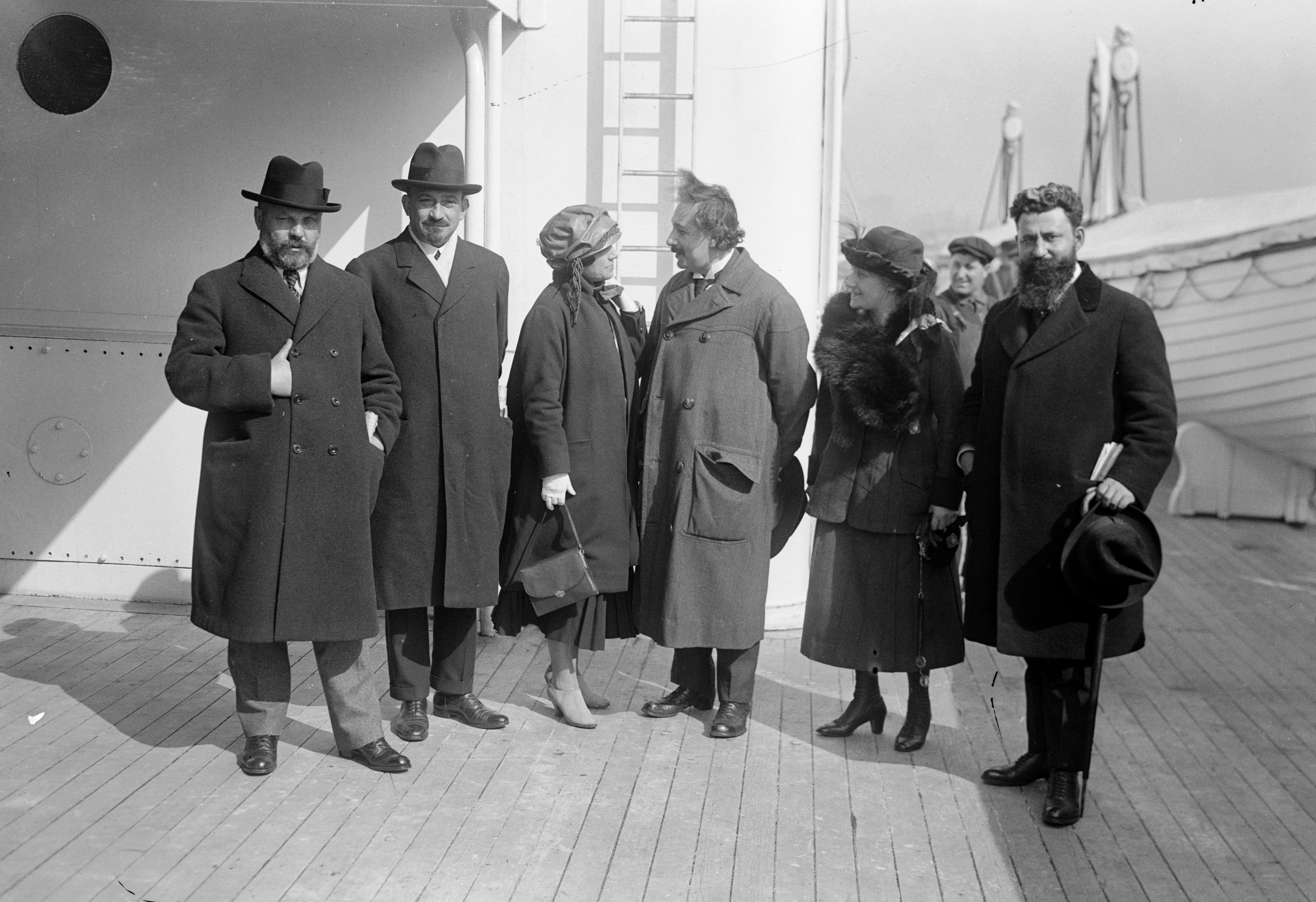
Read more about Women's history

Albert Einstein was born in Ulm, Germany in 1879 and died in Princeton, USA, in 1955. He won the Nobel Prize in 1921 and is considered one of the most groundbreaking scientists of all time, famous for his leading theories of Special Relativity (1905) and General Relativity (1915).
Einstein was not only an important physicist but was also something of an icon of the 20th century, with the famous photo of his wild white hair and tongue sticking out.
Throughout his life, the great thinker gained global fame and admiration but also had his fair share of critics. In 1933 when Einstein said he would never return to Germany, a Berlin newspaper printed a headline saying, ‘Good news from Einstein – he’s not coming back!’.
Here we look at 10 fascinating facts about the life of Albert Einstein.
It is sometimes said that Einstein wasn’t exactly a swot at school, but this isn’t quite true. One of his schoolteachers did tell him that he wouldn’t amount to anything, but this was probably more to do with his desire to question everything and his refusal to accept things as fixed – something that later informed the way he studied the universe.
Einstein did initially leave school at 15 and did fail some exams, but this was because of his poor grasp of French as a youngster. He was certainly a child prodigy, though, and was outstanding at Latin, geometry, maths, and a fantastic violin player.
At the age of 16 Einstein wrote his first scientific paper, called ‘The Investigation of the State of Aether in Magnetic Fields’.

American scientist Robert Oppenheimer, known as the ‘father of the atom bomb’, knew Einstein for decades. Oppenheimer opened up about his friendship with Einstein at a talk he gave in Paris in 1966. He also addressed the then-popular misconception that Einstein was the driving force behind the atomic bomb.
In 1939, Einstein sent a letter to US president Franklin Roosevelt warning that the Nazis could develop an atomic bomb and that it would be better if the US beat them to it.
Oppenheimer claimed after the war that the letter had had ‘very little effect’ on the creation of what became known as the Manhattan Project, the American development of the first atomic bomb, and that ‘Einstein himself is really not answerable for all that came later’ (i.e. the creation and deployment of the bombs).
Einstein, after the war, nonetheless expressed regret at the letter to Roosevelt, saying: ‘Had I known that the Germans would not succeed in developing an atomic bomb, I would have done nothing.’
Einstein could see the potentially catastrophic consequences of nuclear weapons. He once said, ‘I know not with what weapons World War III will be fought, but World War IV will be fought with sticks and stones.’
A popular legend about Einstein is that he had a liaison with Marilyn Monroe. There is no evidence that the two ever met, but Shelley Winters, who shared an apartment with Monroe in the 1940s, claimed that when they were compiling a list of fantasy flings, one of the names Monroe jotted down was the ageing physicist. When Winters mentioned Einstein’s advanced years, she claimed that Monroe replied, ‘That has nothing to do with it. I hear he’s very healthy.’ Monroe was also said to have had a photo of him on her piano.
Monroe may certainly have been an admirer of Einstein’s intellect, though, if nothing else, as she was an avid reader with a personal library of hundreds of first editions, and her third husband was playwright, Arthur Miller.
Einstein’s scientific genius was more than enough of a contribution to the modern world, but he was also active in the realm of politics. He even said himself that his life was ‘divided between politics and equations’.
He wasn’t shy in expressing his opposition to the First World War, during which he was working in Berlin. He even encouraged Germans to publicly protest and to refuse conscription. He once likened nationalism to a disease, calling it ‘the measles of mankind’.

The Federal Bureau of Investigations (FBI) opened a file on Einstein in the early 1930s, watching him and gathering information on the academic.
J. Edgar Hoover, the FBI director, was concerned about Einstein’s public activism in the realms of pacificism and other left-leaning causes. Hoover considered Einstein an ‘extreme radical’, and tried unsuccessfully to bar his entry into the United States. The FBI’s colossal casebook on Einstein eventually ran to over 1,400 pages.
Near the end of his life Einstein, the veteran scientist and respected figure was asked to become the second president of Israel. The first president, Chaim Weizmann, with whom Einstein co-founded the Hebrew University of Jerusalem in 1918, had died in November 1952.
Einstein, who was born into a Jewish family and evaded Nazi persecution by remaining in the US from 1933, reluctantly declined the invitation, saying that he lacked ‘experience and natural aptitude’.

In 1931 a book was published in Germany called 100 Authors Against Einstein.
The work was an attack on Einstein’s scientific theories, but the book was ridiculed at the time (and since) by leading intellectuals as unscientific and an embarrassment. Einstein hit back that if he were wrong then one author would have been enough, not 100!
In 1919, Einstein married his second wife, Elsa Lowenthal. Elsa had been married before and Lowenthal was her married name - her maiden name was in fact, Einstein. This was because she was Albert Einstein’s first cousin.
Einstein once said that even if he saw a ghost, he still wouldn’t believe it. In 1930, while in California, Einstein attended a séance at the house of author Upton Sinclair, conducted by a medium who called himself Nostradamus. Nothing much happened during the séance, an attendee later reported, and Einstein was apparently unmoved by this extrasensory evening.
There is a popular misconception that Einstein’s theories made Isaac Newton’s work redundant. But although Einstein’s theories were vital and revolutionary, they didn’t make Newton’s natural laws obsolete. As Einstein said himself:
‘No one must think that Newton’s great creation can be overthrown in any real sense by this [Theory of Relativity] or by any other theory. His clear and wide ideas will for ever retain their significance as the foundation on which our modern conceptions of physics have been built.’